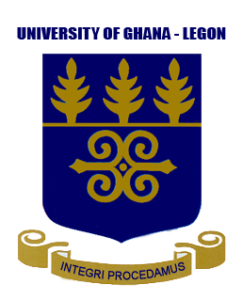
University of Cape Coast (UCC), BSc. Biochemistry
Degree Type: 
Bachelor of Science
Department: Department of Biochemistry
Programme Duration:
4 years (Standard Entry)
Modes of Study:
Regular
Entry Requirements:
The minimum admission cut-off is 36 and 24 for WASSCE and SSSCE applicants, respectively, with passes (A1 – C6) (A – D) in Core English, Core Mathematics, and Integrated Science or Social Studies. In addition, candidates must have obtained passes in three elective subjects, preferably Biology, Chemistry, Physics, and elective Mathematics, with grades not lower than C6/D at the WASSCE/SSSCE levels, respectively.
Follow us on WhatsApp for more updates: https://whatsapp.com/channel/0029VaCyYGIFHWpx22L38a2K
Seekers Consult
Contact Us for Your Study Abroad Journey
We search for schools and check available scholarships for you
Contact: 0550414552 / 0362297079

Loan for government workers
Transcript Application
English Proficiency
Recommendation letter
Project work/thesis for undergraduate, master’s, and PhD students.
Apply for Affidavit, Gazette instantly
Passport and Visa Applications
All other Internet Services
Career Opportunities:
Opportunities abound for students who successfully graduate with this degree programme in areas of scientific research, as well as professional and technical occupations. Most biochemists are employed as researchers in universities, research institutes, and large companies in sectors such as pharmaceuticals. Small companies also employ biochemists to provide specialist services, such as toxicological studies. Biochemistry graduates also go into other sectors, such as commercial and public sector management and business and finance professions.
You can also be employed as:
- Research Officers in Medical Laboratories
- Medical Lab Assistant in hospitals
- Research officer in the pharmaceutical industry
- Plant Pathologist
- Nutritional Scientist
Programme Structure
Level 100
First Semester
ASP A: African Studies (Core)
BIO 101: Diversity of Living Organisms
CHE 101A: Introduction to Physical/Inorganic Chemistry I
CHE 103: Introductory Practical Physical and Inorganic Chemistry
CHE 105A: Introduction to Basic Organic Chemistry I
CMS 107: Communicative Skills I
ILT 101: Information Literacy
PHY 101: General Physics I (Theory)
PHY 103: General Physics I (Practical)
Second Semester
BIO 102: Basic Cytology and Genetics
BIO 103: Data Collection and Analysis
CHE 101C: Introduction to Physical/Inorganic Chemistry II
CHE 104: Introductory Practical Organic Chemistry
CHE 105B: Introduction to Basic Organic Chemistry II
CMS 108: Communicative Skills II
LAR/LSS/LED: (Inter-Faculty Course)
PHY 102: General Physics II (Theory)
PHY 104: General Physics II(Practical)
Level 200
First Semester
BCH 201: General Biochemistry I
BCH 202: General Biochemistry II
BCH 205: Introduction to Information Technology
BCH 208: Nutrition
BCH 212: General Biochemistry Practical
BIO 202: Cell and Tissue Organisation
BIO 204: Morphology and Anatomy of Higher Plants
CHE 201: Main Group Chemistry
CHE 210: Organic Chemistry I
CHE 2O5: Practical Organic Chemistry
PHL 205: Critical Thinking and Practical Reasoning
Second Semester
BCH 206: Mathematics for Biologists
BCH 214: General Biochemistry Practical
BIO 208: Population Genetics & Evolution
BIO 208: Population Genetics and Evolution
BIO 212: Mammalian Anatomy & Physiology
BIO 212: Mammalian Anatomy and Physiology
CHE 205: Practical Organic Chemistry
CHE 211: Organic Chemistry II
Level 300
First Semester
BCH 301: Intermediary Metabolism
BCH 303: Enzymology
BCH 305: Analytical Biochemistry I
BCH 327: Chemistry of Carbanions & Aromatic Compounds
BCH 331: Bio-Computing
BCH 335: Biochemical Genetics and Biotechnology
BCH 336: General Microbiology
BCH 337: Analytical Biochemical Techniques I
Second Semester
BCH 306: Analytical Biochemistry II
BCH 310: Biochemistry of Hormones
BCH 324: Nutritional Biochemistry
BCH 326: Food Microbiology
BCH 330: Chemistry of Natural Products
BCH 333: Principles of Management
BCH 338: Analytical Biochemical Techniques II (Mini Project/Internship)
BCH 399: Research Methods for Biochemists
BIO 312: Biostatistics
Level 400
First Semester
BCH 403: Biological Oxidation and Bioenergetics
BCH 403: Biological Oxidation and Bioenergetics
BCH 405: Integration and Control of Metabolism
BCH 407: Clinical Biochemistry
BCH 423: Fermentation
BCH 425: Biochemistry of Parasites
BCH 427: Biomembranes
BCH 429: Protein Structure and Biophysics
BCH 431: Food Biochemistry
BCH 435: Insect Biochemistry
BIO 401: Entrepreneurship and Business Development
Second Semester
BCH 404: Plant Biochemistry
BCH 412: Methods in Tissue Culture
BCH 422: Immunology and Immunochemistry
BCH 432: Xenobiotic Metabolism
BCH 434: Mechanisms of Enzyme Action and Catalysis
BCH 438: Principles of Biochemical Engineering
BCH 439: Food processing and preservation
BCH 443: Food Processing and Preservation
BCH 499: Project Work
Biochemistry, Cell and Molecular Biology (BCMB) is concerned with the study of the chemical and physical principles of biological processes such as cell development and the storage and transfer of genetic information. It is a sub-discipline of the Biological Sciences and draws from Biology, Chemistry, Physics, Mathematics, Biochemistry, Cell Biology, Genetics, and Molecular Biology.
Research is an integral part of BCMB. This is as a result of the fact that the programme is built on the need to understand the basic structural and functional units of life. Basic research in BCMB investigates, among others, cell development, growth, and heredity, whereas applied research focuses on developing products and processes to improve human lives. Without such research efforts, enhanced methods of detecting diseases and genetic disorders, together with the discovery of new drugs and medication such as those used in treating cancer and Alzheimer’s disease, may not have been discovered.
Other useful applications of BCMB include biofuels and genetically engineered crops. Enrolled students have the option of either pursuing a Bachelor of Science in Biochemistry, Cell & Molecular Biology, or a Bachelor of Science in Biochemistry combined with a second subject such as Nutrition.







The screen is separating from the keyboard. I’m not using it anymore. I have alot of files and documents on it and I fear of losing it.
kindly explain well